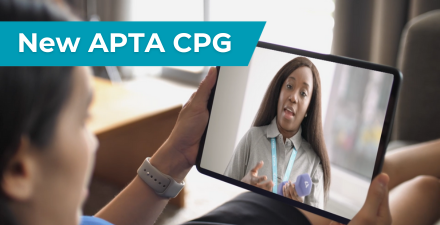Sure, the biggest news from the 2019 Medicare physician fee schedule is the new reporting and payment system for many physical therapists (PTs), but that's not the whole story: the 2019 rule also includes new current procedural terminology (CPT) codes that allow PTs to conduct and bill Medicare for remote monitoring of patient factors such as weight, blood pressure, and pulse oximetry.
Many questions remain as to how the US Centers for Medicare and Medicaid (CMS) will implement the new codes, and APTA is developing online resources that will supply further details as they become available.
Here's what APTA knows so far: the new CPT codes apply to chronic care, and they allow physicians, clinical staff, or "other qualified healthcare professionals" to conduct remote monitoring in certain circumstances. Because PTs are included in the American Medical Association’s definition of "qualified healthcare professionals" they are able to participate in the remote monitoring to the extent allowed by state and scope-of-practice laws.
And while it's true that these services are provided remotely, because they are inherently non face-to-face CMS doesn't consider the activities to fall under "telehealth." That's an important distinction, because under current CMS rules, PTs aren't among the providers permitted to furnish telehealth services.
The new codes are:
- Remote physiologic monitoring treatment management services, 20 minutes or more of clinical staff/physician/other qualified healthcare professional time in a calendar month requiring interactive communication with the patient/caregiver during the month (99457)
- Remote monitoring of physiologic parameter(s) (eg, weight, blood pressure, pulse oximetry, respiratory flow rate), initial; set-up and patient education on use of equipment (99453)
- Remote monitoring of physiologic parameter(s) (eg, weight, blood pressure, pulse oximetry, respiratory flow rate), initial; device(s) supply with daily recording(s) or programmed alert(s) transmission, each 30 days (99454)
CMS intends to issue guidance on how exactly the codes can be used, but the agency did supply an important detail when the new rule was released: namely, that CPT code 99457 cannot be furnished "incident to" another provider’s professional services.
